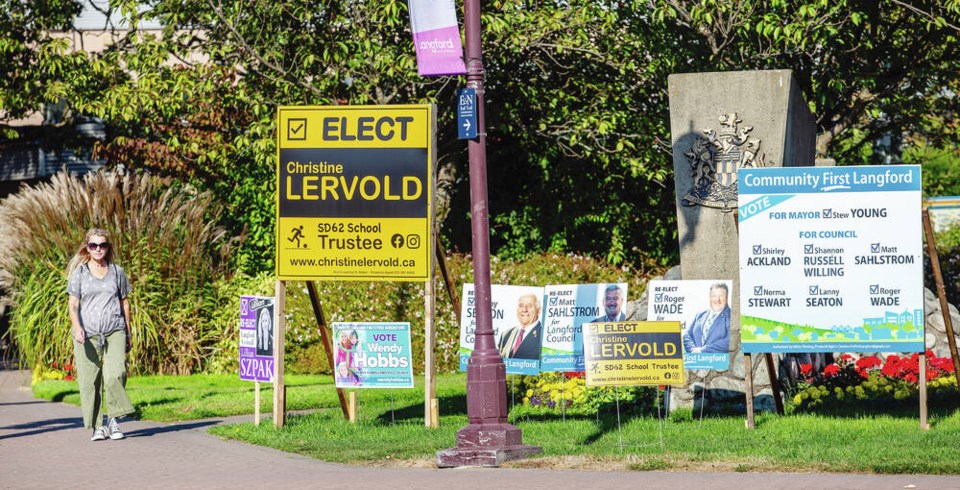I began writing this on Sept. 30, the National Day for Truth and Reconciliation, a day to reflect on the past, present and future of the relationships between non-Indigenous and Indigenous people.
One obvious issue to consider in that relationship is the land on which we all live. Indigenous people lived on this land for millennia before Europeans started to settle on Vancouver Island in the 1840s.
Like many others now, when I introduce myself in a meeting I refer to the fact that I live on the traditional and unceded or improperly ceded territories of the Lekwungen-speaking people.
The extent to which those lands were not in fact ceded — surrendered to Britain — by the local Indigenous people was brought home to me recently by a book entitled To Share not Surrender.
The book is one product of a 2017 conference organized by the Songhees First Nation and the University of Victoria to consider the so-called Douglas Treaties. These “treaties” form the basis of Indigenous and settler rights to the land in this region and in a couple of other places on Vancouver Island.
The first thing one has to conclude from reading the book — and especially Neil Vallance’s chapter on the making of the Douglas Treaties — is that the “treaties” were in essence fraudulent.
There were oral discussions with chiefs and others for which no formal records were made by the British. They then “signed” a paper with a cross (few if any spoke or wrote English), indicating their agreement. The actual written text was sent later from the Hudson’s Bay Company and their “signatures” were attached.
And what did the First Nations agree to? Vallance — a retired property lawyer who did his PhD on this subject at UVic — says they were “sharing treaties.” “In sum,” he concludes, “First Nations negotiated with James Douglas an agreement to share, not surrender, their land and its resources.”
So what does that mean for those of us who now occupy the lands subject to the Douglas Treaties? After all, we settlers can trace our local roots back, at best, less than 200 years — less than one per cent of the time that Indigenous people have been in North America.
More specifically, what does it mean for municipal governments whose main focus is about the management of land, and whose principal source of revenue comes from a tax on land. If the land is, in reality, to be shared, what does that mean in practice? What are the fair and just terms for sharing the land?
I don’t begin to have an answer to those questions, and in any case, clearly, it is something that needs to be decided in negotiations between First Nations and the municipal, provincial and federal governments.
But I have given it some thought, assisted by discussions with my colleagues in Livable Victoria, among others.
It seems to me that one place to start is with a powerful comment in the report of the Truth and Reconciliation Commission: “reconciliation will never occur unless we are also reconciled with the earth.”
In other words, land use must be compatible with reconciliation with the natural world, as understood by local First Nations. Among other things, surely this means respecting the land, waters, plants and animals and protecting and restoring natural areas.
Second is the issue of returning land. The “Land Back” movement aims “to get Indigenous lands back into Indigenous hands.” While negotiations have already done that to some extent, surely there is more to be done?
Third, sharing the land must mean shared decision-making. Local First Nations must have voice and power in land-use decisions — whether municipal, provincial or federal — made with respect to their traditional territories and based on traditional knowledge.
Finally, rent and compensation: Surely local First Nations are owed rent for the current use of their lands — perhaps through a share of the property tax ? — and compensation for the historical confiscation and use of their lands.
Reconciling land use and development is going to be an issue of growing importance for all the newly elected councillors in this region, so you may want to ask candidates for their views on these issues.
Dr. Trevor Hancock is a retired professor and senior scholar at the University of Victoria’s School of Public Health and Social Policy
>>> To comment on this article, write a letter to the editor: [email protected]



